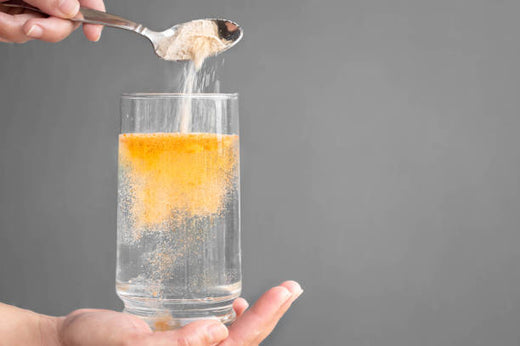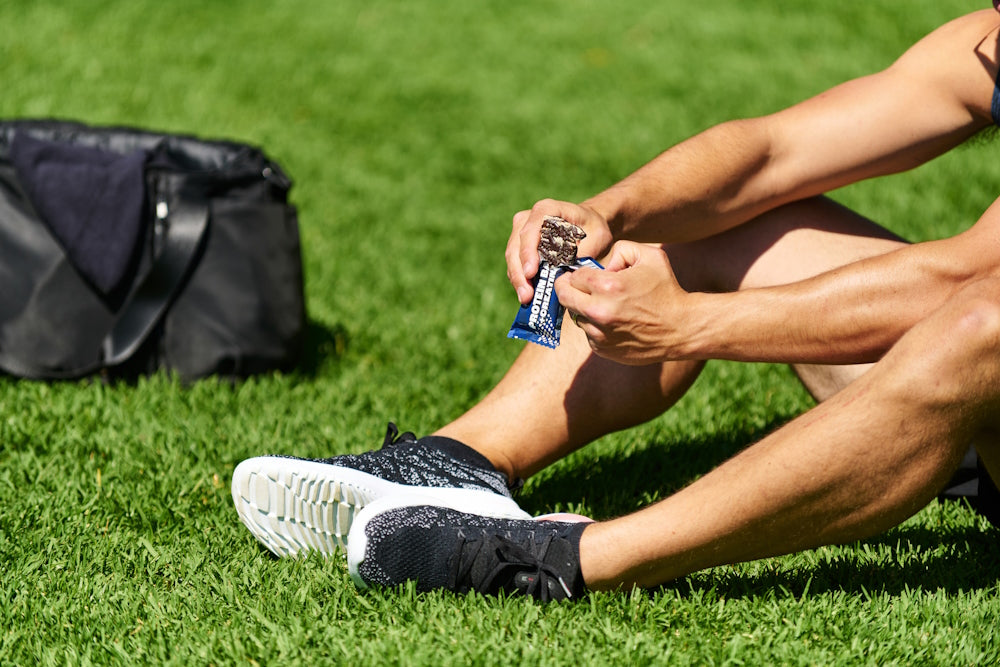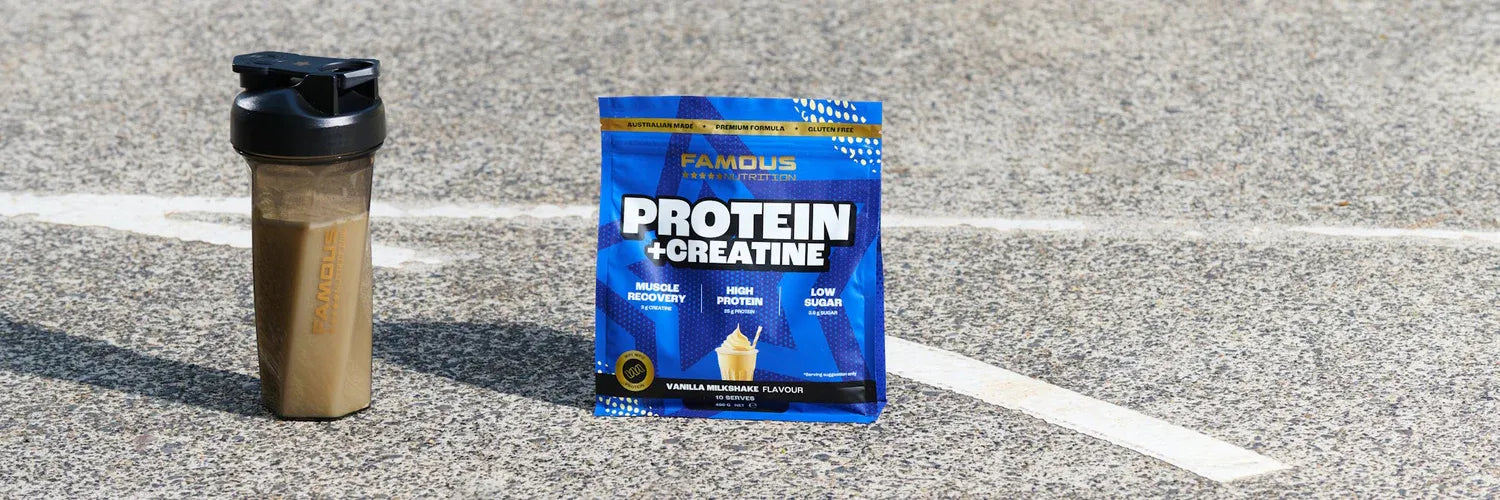
Electrolyte Imbalance: Symptoms, Causes, and Prevention
By: Marc ManzoniShare
Electrolyte imbalance can significantly affect how you feel during your daily activities and workouts.
Understanding electrolyte imbalance symptoms is crucial for everyone, whether you're a regular at the gym or simply going about your daily routine. For example, if you've ever finished a long workout feeling unusually tired and experiencing muscle cramps, this could indicate your electrolytes are out of balance.
Let's explore everything you need to know to maintain proper electrolyte levels and keep your body functioning at its best.
What Are Electrolytes and Why Are They Important?
Electrolytes are minerals in your blood (as well as other body fluids) that carry an electric charge. These essential nutrients play crucial roles in numerous bodily functions.
The main electrolytes in your body include:
- Sodium: Controls fluid levels and supports nerve and muscle function
- Potassium: Assists with heart, nerve, and muscle functions; aids in nutrient and waste transport
- Calcium: Regulates blood pressure and supports hormone secretion
- Magnesium: Helps with nerve and muscle function; supports bone and tooth health
- Chloride: Maintains healthy blood levels and blood pressure
- Bicarbonate: Balances blood pH and helps remove carbon dioxide
- Phosphate: Aids the skeletal system and supports nerve and muscle function
If you've ever felt sluggish after sweating a lot, it might be due to electrolyte depletion. Maintaining the right balance is essential for feeling your best and performing optimally in your daily activities and workouts.
Recognising Electrolyte Imbalance Symptoms
Identifying the signs of electrolyte imbalance early can help you address the issue quickly. Common symptoms of electrolyte imbalance include:
- Muscle cramps or weakness
- Fatigue
- Headaches
- Nausea and vomiting
- Confusion or irritability
- Irregular heartbeat
- Numbness or tingling in limbs
- Seizures (in severe cases)
Remember, these symptoms can vary from person to person and depend on which electrolytes are out of balance. For instance, if you've experienced unexpected muscle cramps during or after a workout, it might be time to check your electrolyte levels, particularly calcium, magnesium, potassium and sodium.

What Causes Electrolyte Imbalance?
There are many factors that can mess with your electrolyte balance. Understanding these causes can help you prevent imbalances from occurring:
- Excessive sweating during intense exercise or hot weather
- Not drinking enough fluids (dehydration). Read our blog about dehydration to learn more.
- Prolonged vomiting or diarrhoea
- Certain medications (e.g., diuretics, laxatives)
- Kidney or heart problems
- Eating disorders
- Severe burns
- Alcoholism
- Poor diet lacking in essential nutrients
While athletes are more prone to these issues due to intense training and sweating, anyone can experience an electrolyte imbalance, especially if they're not monitoring their intake carefully.
How to Fix Electrolyte Imbalance at Home
The good news is, you can take simple steps to manage a mild imbalance at home. Here are some effective strategies:
- Stay hydrated: Drink plenty of water throughout the day, especially during and after exercise.
- Consume electrolyte-rich foods: Include foods high in electrolytes in your diet, such as:
- Bananas and avocados (potassium)
- Leafy greens (magnesium and calcium)
- Nuts and seeds (various electrolytes)
- Dairy products (calcium)
- Use electrolyte supplements: Consider using electrolyte supplements, particularly during intense workouts or in hot weather.
- Drink coconut water: This natural beverage is rich in electrolytes and can help replenish your body's stores.
- Reduce alcohol and caffeine intake: Both can contribute to dehydration and electrolyte imbalance.
- Keep an eye on your salt intake: We often hear about cutting back on salt, but did you know your body actually needs some to function properly? It's all about finding that sweet spot to maintain proper sodium levels.
- Now, for those of you who love to push yourselves at the gym or spend long days in the sun, here's a pro tip: keep some electrolyte supplements handy. Many people swear by them for maintaining their energy levels during intense workouts or on scorching hot days.
If symptoms persist or worsen, seek medical advice.

Preventing Electrolyte Imbalance
Prevention is key when it comes to maintaining proper electrolyte balance. Here are some strategies to help prevent electrolyte imbalance:
- Maintain proper hydration: Make drinking water throughout the day a habit, not just when you feel thirsty.
- Balance your diet: Eat a variety of fruits, vegetables, and whole grains to provide essential electrolytes.
- Replace fluids lost during exercise: As a guide, try to drink 1.5 litres of water for every litre of fluid lost while working out.
- Use sports drinks or electrolyte drinks during intense workouts: This is especially important for workouts lasting more than an hour or in hot conditions.
- Monitor your medications: If you're taking medications that can affect electrolyte balance, discuss potential side effects with your doctor.
- Avoid excessive alcohol consumption: Alcohol can lead to dehydration and disrupt your body's balance of electrolytes.
- Listen to your body: Pay attention to signs of dehydration or electrolyte imbalance and address them promptly.
By incorporating these habits into your daily routine, you can significantly reduce your risk of experiencing an electrolyte imbalance.
The Role of Electrolytes in Fitness Performance
For fitness lovers and athletes, maintaining proper electrolyte balance is crucial for peak performance. This is because while you exercise, it causes your body's core temperature to increase. You will then sweat to cool down, which results in a loss of electrolytes.
It's important to replenish these lost electrolytes, as they play a massive role in:
- Muscle contraction and relaxation
- Nerve signalling
- Maintaining proper hydration
- Preventing muscle cramps
- Supporting energy production
When your electrolyte levels are balanced, you're more likely to perform at your best and recover more quickly from intense workouts. Many athletes report improved performance after prioritizing proper hydration and electrolyte balance.

When to Seek Medical Help
While mild electrolyte imbalances can often be addressed at home, there are situations where medical intervention is necessary. Seek immediate medical attention if you experience these severe symptoms:
- Severe confusion or disorientation
- Rapid or irregular heartbeat
- Seizures
- Coma
- Severe muscle weakness
- Metabolic acidosis or alkalosis
- Persistent vomiting or diarrhoea
These symptoms could indicate a severe electrolyte imbalance that requires professional medical treatment. If you're unsure about your symptoms, it's always better to be cautious and seek help.
Populations More at Risk of Electrolyte Imbalance Symptoms
Certain groups need to monitor their electrolytes more closely:
- Endurance athletes: Due to prolonged sweating and exertion, they're at higher risk of imbalances in electrolyte concentrations.
- Older adults: Age-related changes can affect electrolyte balance and increase the risk of dehydration.
- People with chronic illnesses: Certain conditions, such as kidney disease or heart failure, can impact electrolyte levels.
- Individuals on specific medications: Some medications can alter electrolyte balance.
If you fall into one of these categories, it's especially important to monitor your electrolyte levels and consult with a healthcare professional if you have concerns. Regular check-ups can help ensure proper balance. For instance, some sports teams conduct regular hydration checks to maintain optimal performance during training and competitions. This proactive approach helps prevent electrolyte imbalances and ensures athletes are performing at their best.

Keep Your Body in Balance
Understanding electrolyte imbalance symptoms, causes, and prevention methods is crucial for maintaining optimal health and fitness. By staying informed and proactive, you can ensure that your body has the right balance of these essential minerals.
So, the next time you're planning a gym sesh or heading out on a hot day, take a moment to consider your electrolyte needs. Your body will thank you with improved performance, quicker recovery, and overall better health.
Stay hydrated, stay balanced, and keep pushing towards your fitness goals!



